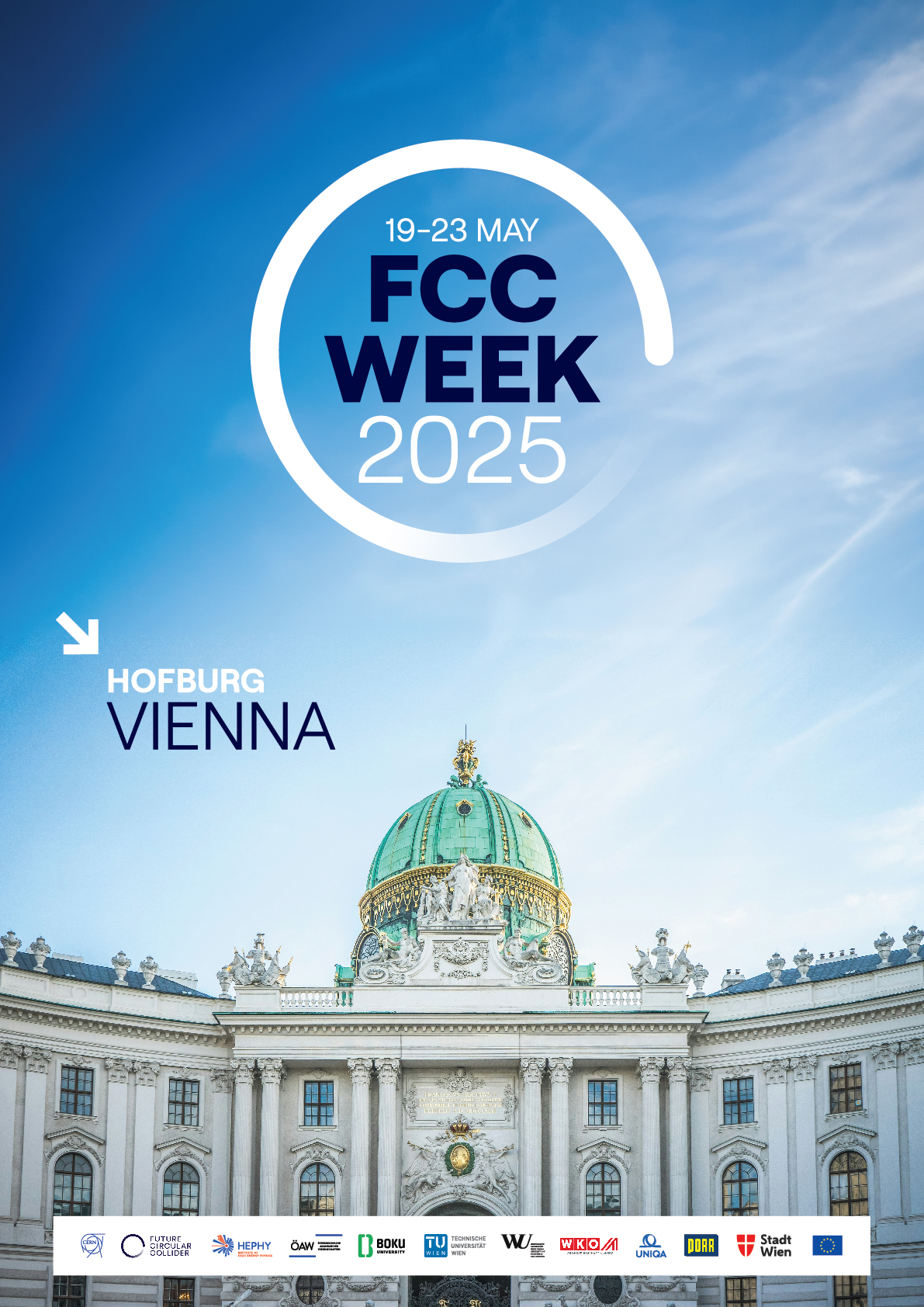The eleventh edition of the Future Circular Collider (FCC) Conference will take place in Vienna, Austria, from 19 to 23 May 2025, at the Vienna Imperial Palace (Wiener Hofburg) in the city center.

FCC Week 2025 will be the first collaboration meeting following the completion of the FCC Feasibility Study report in March 2025 and will offer a comprehensive review of the project's progress, ushering in the next project phase. The results of the FCC Feasibility Study will inform the next update of the European Strategy for Particle Physics.
The conference will bring together international experts across multiple domains to advance the ongoing design work and strengthen the collaboration for CERN's proposed post-LHC research infrastructure. The event is organised in collaboration with the Institute of High Energy Physics (HEPHY) of the Austrian Academy of Sciences (ÖAW), BOKU University, the Technische Universität Wien (TU Wien), the Vienna University of Economics and Business (WU Wien), with the support of the AdvantageAustria - Austrian Federal Economic Chamber, UNIQA, PORR and the City of Vienna.
Programme Structure
Plenary sessions:
The conference will open with a day of plenary keynote presentations featuring distinguished international speakers from science, industry, and policymaking.
The Monday (19/05) sessions will provide:
- The sharpened physics cases of the FCC integrated programme
- Key results from the FCC Feasibility Study
- Updates on local implementation
- Progress on subsurface investigations
- Summary of the environmental initial state analysis
- A comprehensive overview of ongoing activities across all study areas
- Planning for the next phase
A special plenary session on Wednesday (21/05) will focus on large-scale tunnelling projects in Austria, covering organisation and planning, environment and sustainability along with advancements in tunnelling technologies – all topics of highest relevance for the FCC project.
An Early Career Researchers forum will take place on Tuesday (20/05), providing a platform for young scientists to exchange ideas, present their work, and engage with experts in the field.
A closing plenary session on Friday (23/05) will showcase the key conclusions from the parallel sessions.
Parallel Sessions:
Specialized parallel sessions on Tuesday, Wednesday, and Thursday will cover:
- Physics and experiments
- Accelerator design
- Advanced technologies
- Technical infrastructure development
- Civil engineering
- Territorial Implementation
- Sustainability & Socio-economic Impact
These focused sessions create opportunities to forge new collaborations, share research findings, and build lasting relationships within the global particle physics community and beyond.
On Wednesday, a dedicated workshop and industry day, co-organized with the AdvantageAustria - Austrian Federal Economic Chamber, will focus on the impact of Big Science projects on society and the economy, also aiming at creating links and identifying opportunities with industrial partners.
Poster session:
Researchers are also invited to showcase their work during the dedicated poster session on Thursday afternoon. This platform offers:
- Opportunities to present cutting-edge projects in particle physics
- Exposure to advances in accelerator physics and technology
- Networking with peers and experts in the field
Social Events and Cultural Experiences:
Join us for an evening of classical music in the Golden Hall of the world-famous Musikverein with the Vienna Johann Strauss Orchestra and for the conference dinner in the Vienna City Hall.
